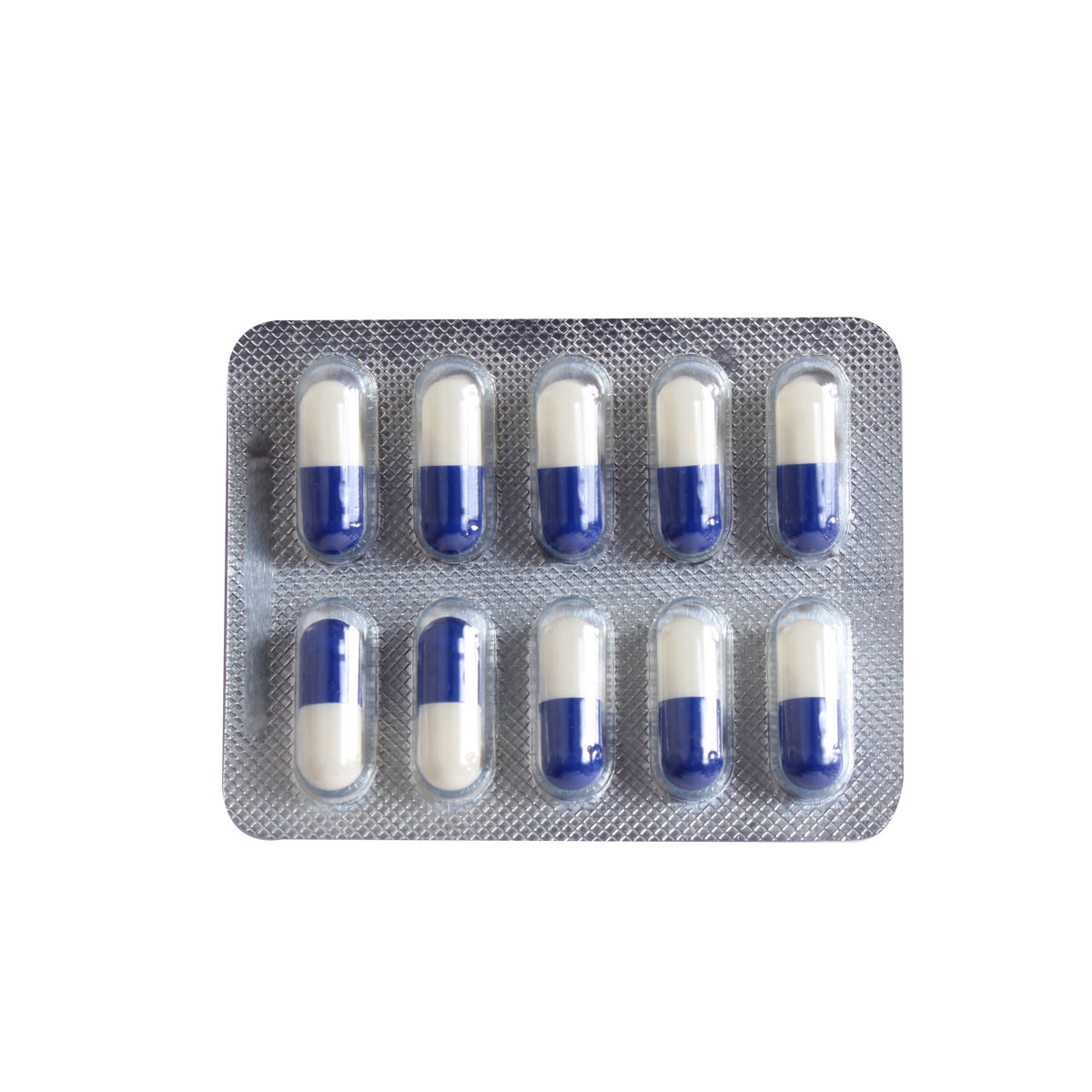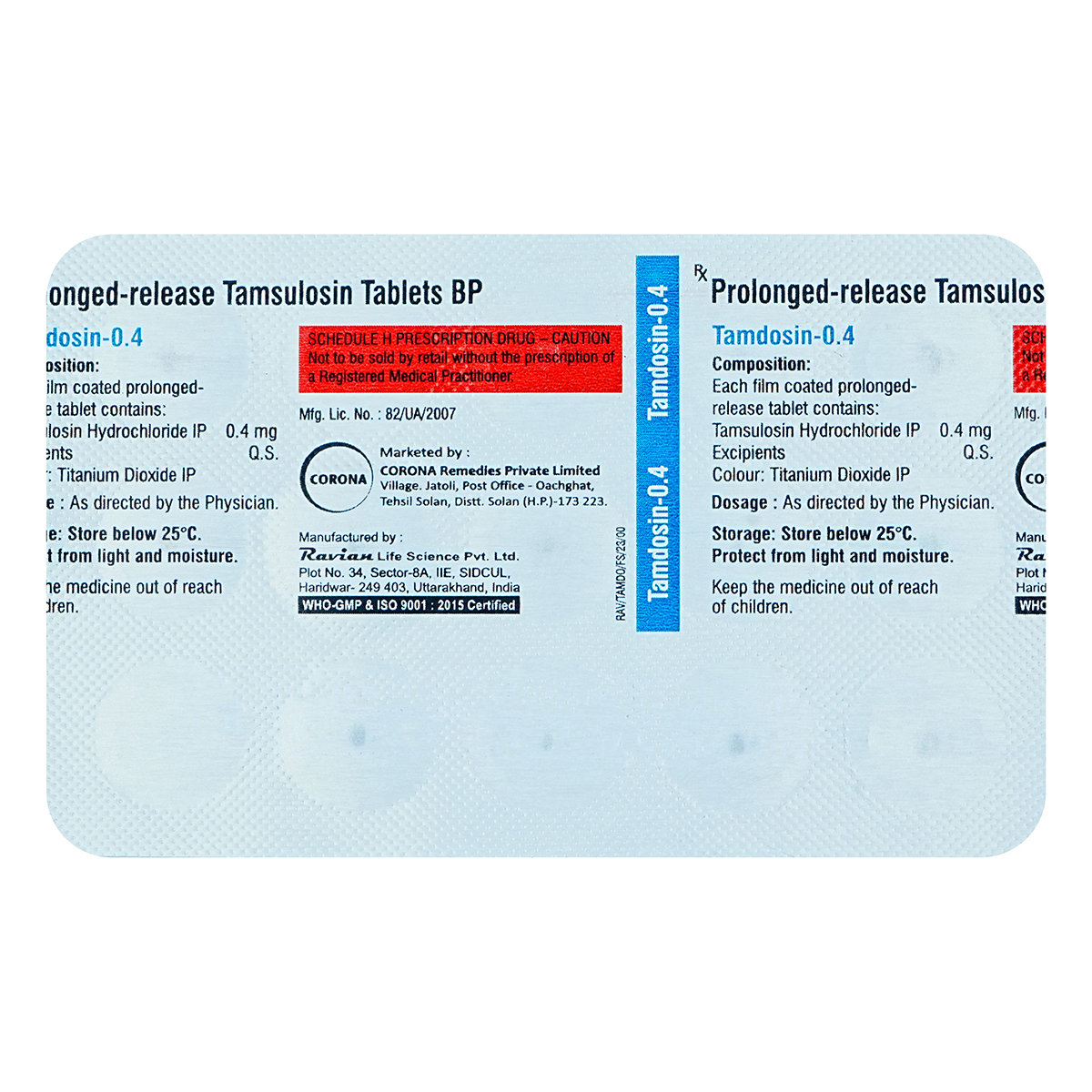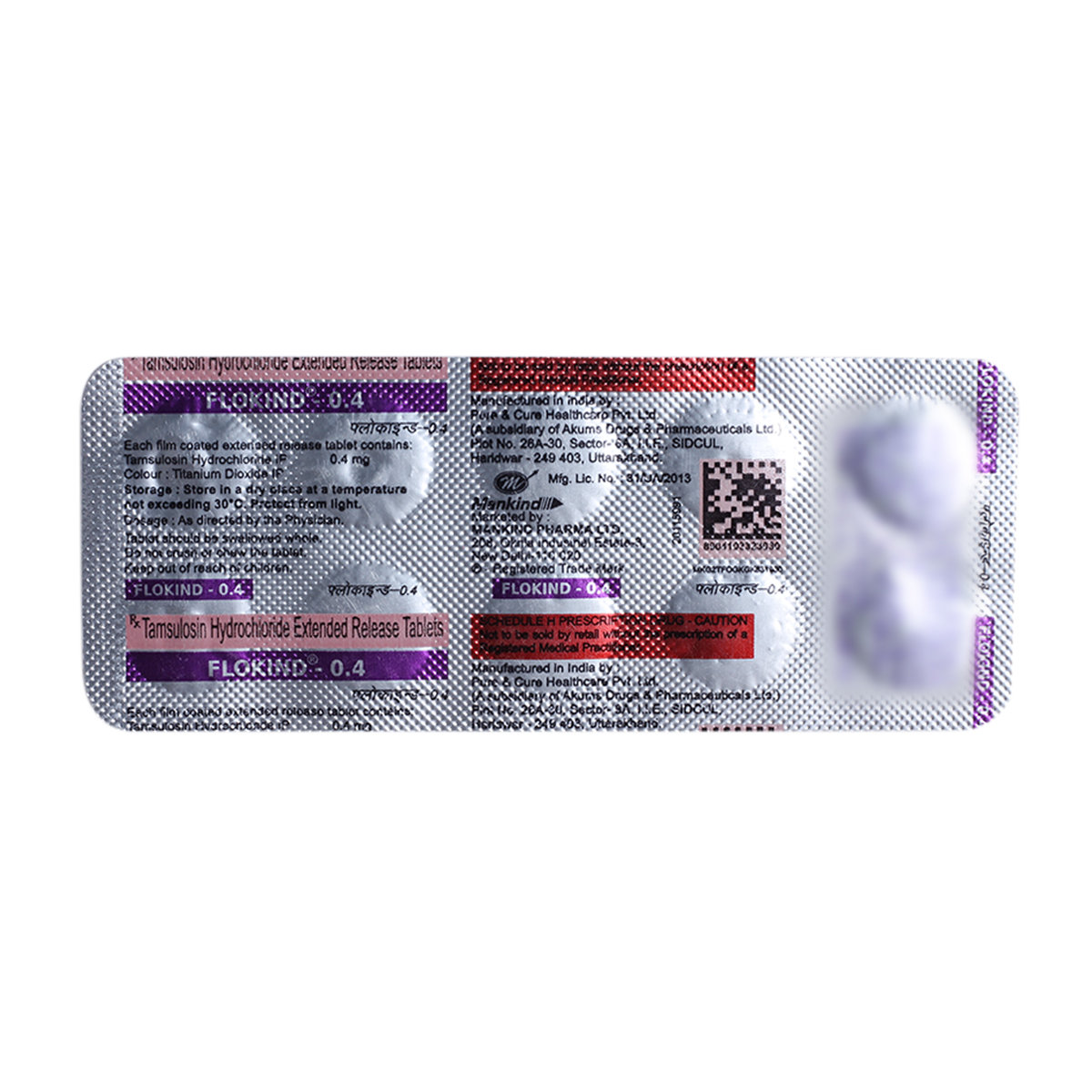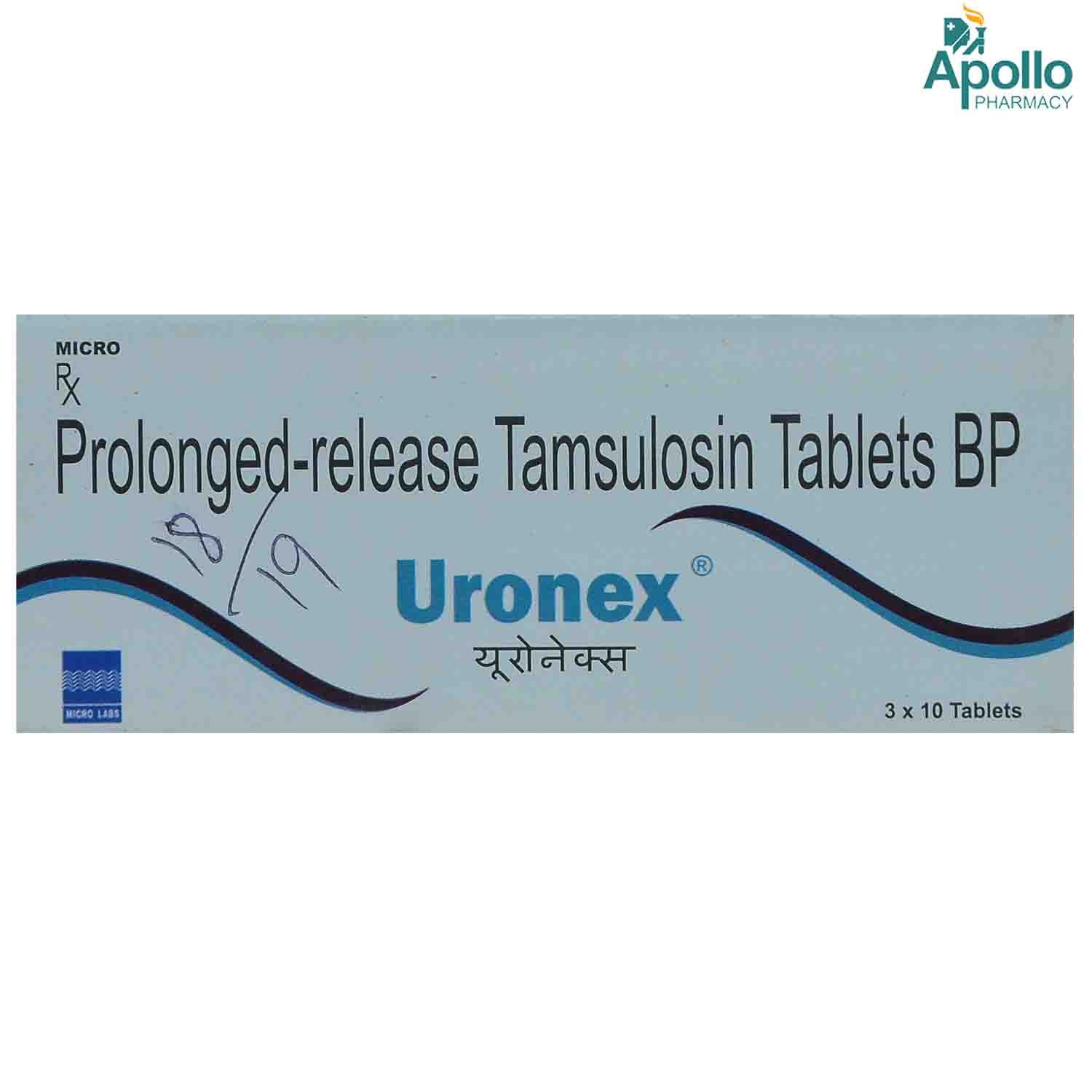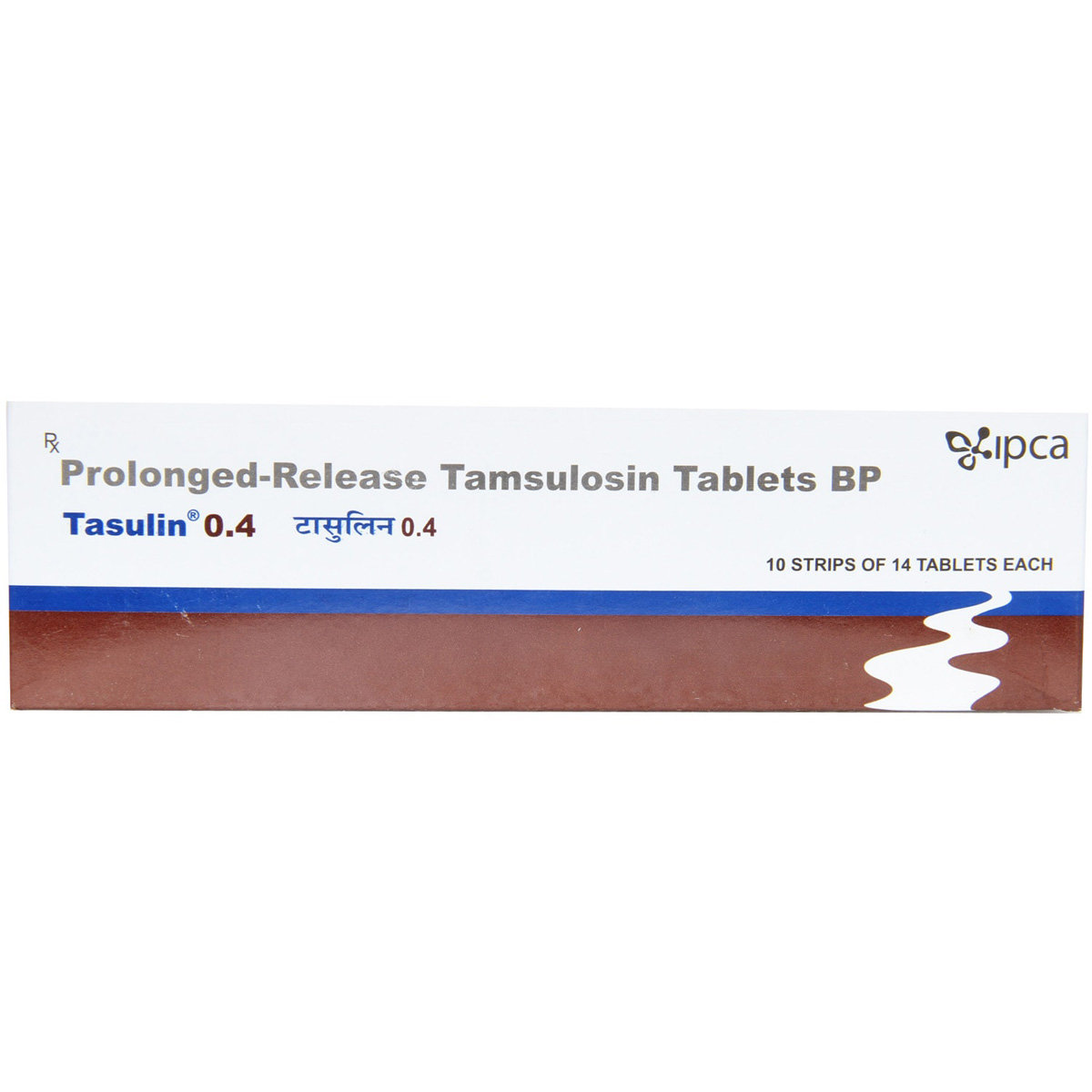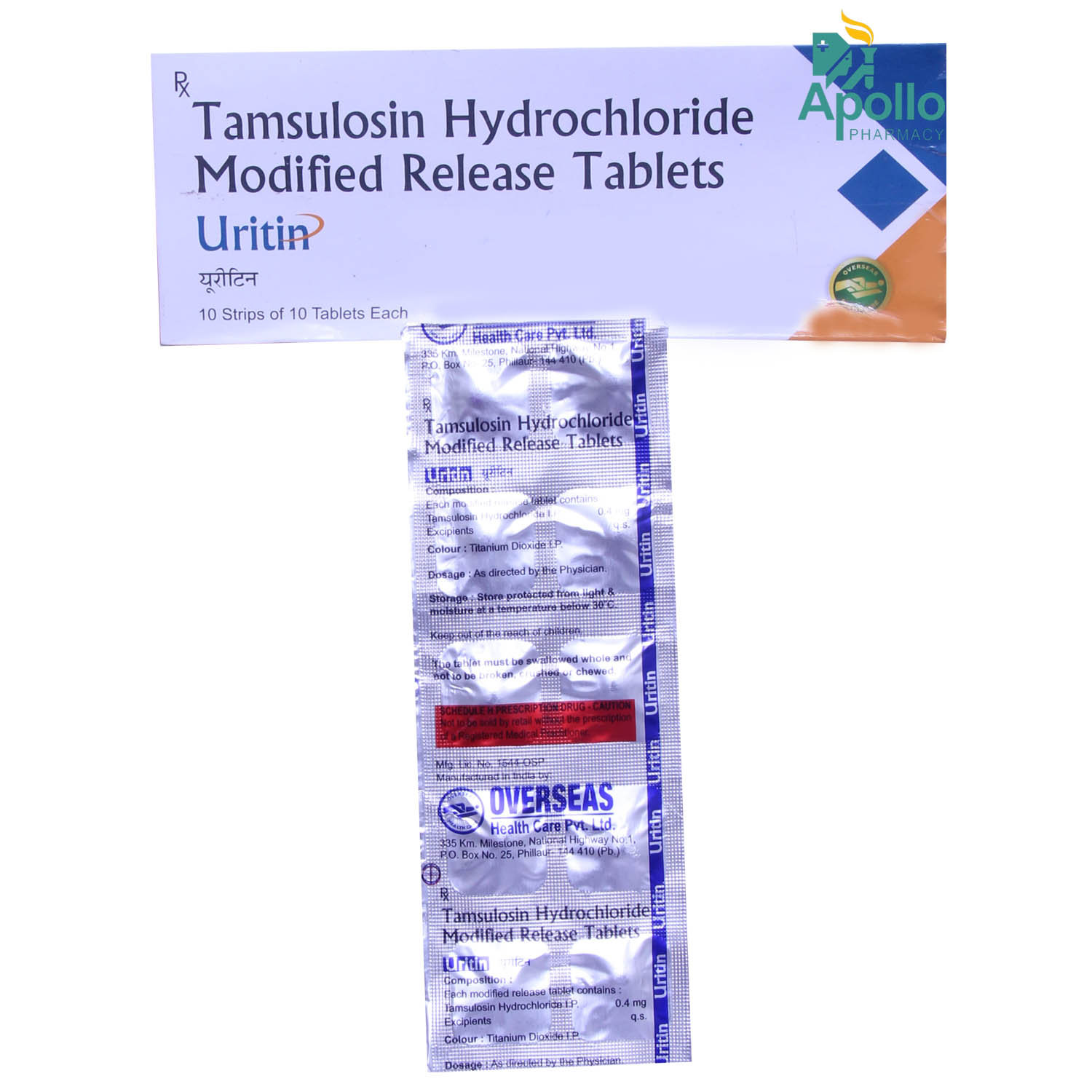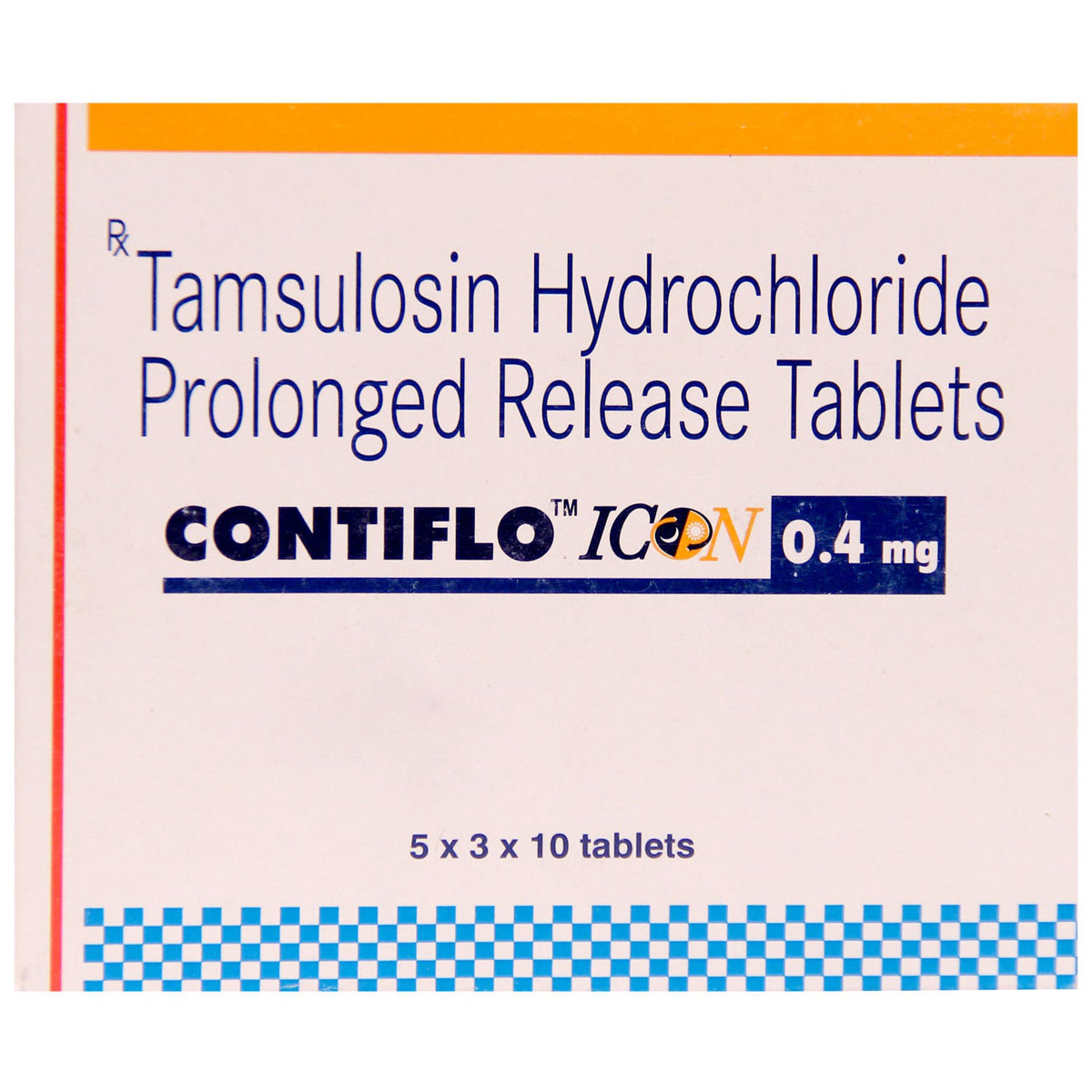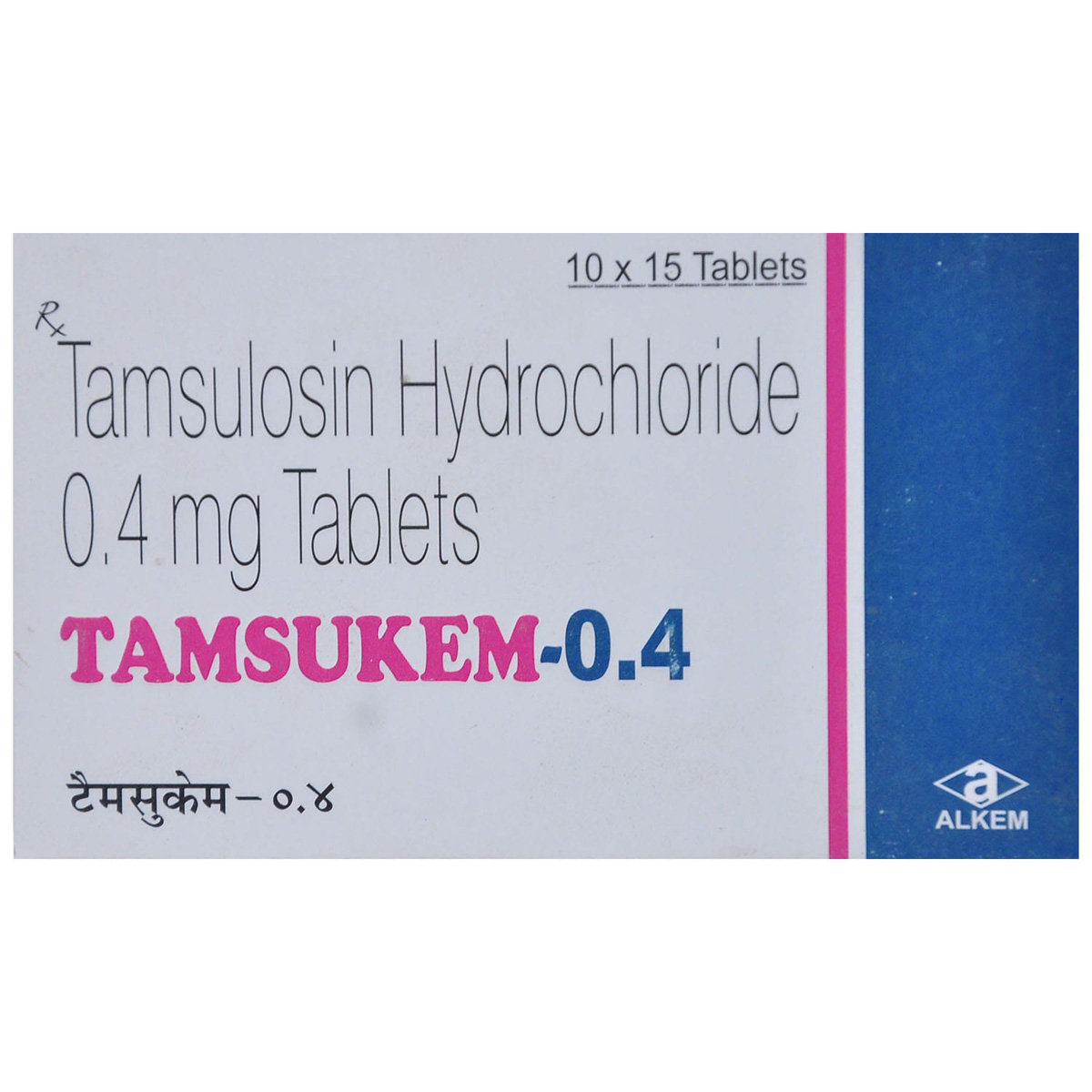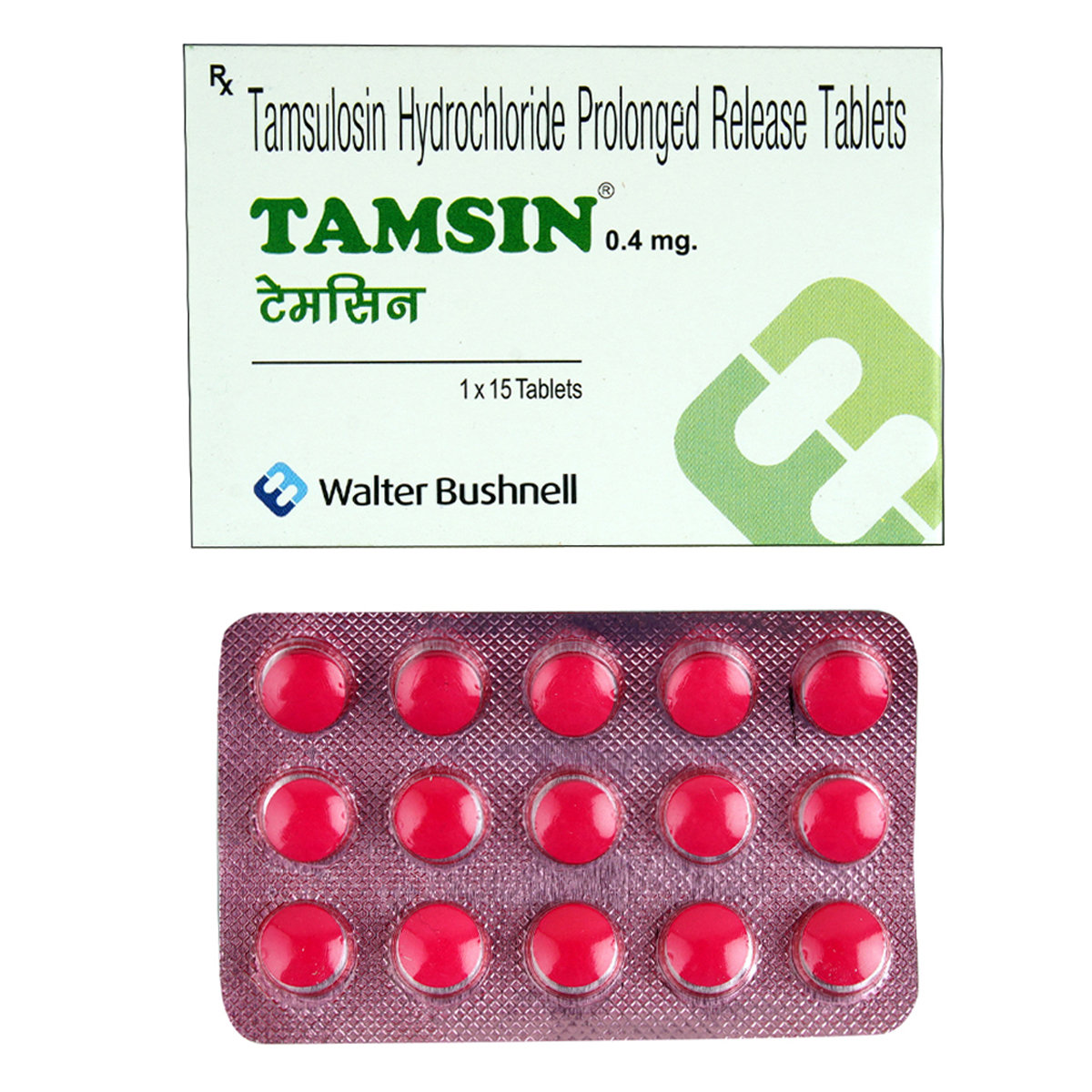- Home
- Tamsis Tablet
Tamsis Tablet Substitute
Tamsis Tablet Substitute
Medicine Composition:
TAMSULOSIN-0.4MGAll Substitutes & Brand Comparisons
RX
Uripro 0.4mg Tablet 10's
FDC Ltd
₹70
(₹6.3 per unit)
36% CHEAPERRX
Tamdosin-0.4 Tablet 15's
Corona Remedies Pvt Ltd
₹133
(₹7.98 per unit)
19% CHEAPERRX
Consistam-0.4 Tablet 10's
Alvio Pharmaceuticals Pvt Ltd
₹90
(₹8.11 per unit)
17% CHEAPERRX
Flokind-0.4mg Er Tablet 10's
Mankind Pharma Pvt Ltd
₹107.5
(₹9.68 per unit)
1% CHEAPERRX
Tambest 0.4 Tablet 10's
Zycris Healthcare
₹112.5
(₹10.13 per unit)
2% COSTLIERRX
Uronex Tablet 10's
Micro Labs Ltd
₹121.5
(₹10.94 per unit)
10% COSTLIERRX
Geritam 0.4 Tablet 10's
Septalyst Lifesciences Pvt Ltd
₹131.5
(₹11.84 per unit)
20% COSTLIERRX
Tasulin 0.4 Tablet 14's
Ipca Laboratories Ltd
₹185
(₹11.9 per unit)
20% COSTLIERRX
Uritin 0.4 mg Tablet 10's
Abbott India Ltd
₹152.5
(₹13.73 per unit)
39% COSTLIERRX
Contiflo Icon 0.4 mg Tablet 10's
Sun Pharmaceutical Industries Ltd
₹155.5
(₹14.0 per unit)
41% COSTLIERRX
Tamsukem 0.4 Tablet 15's
Alkem Laboratories Ltd
₹267
(₹16.02 per unit)
62% COSTLIERRX
Geristart Tablet 10's
Alembic Pharmaceuticals Ltd
₹188
(₹16.92 per unit)
71% COSTLIERRX
Tamsin 0.4mg Tablet 10's
Martin & Harris Pvt Ltd
₹204.5
(₹18.41 per unit)
86% COSTLIERRX
Tamsin 0.4 mg PR Tablet 15's
Walter Bushnell
₹307
(₹18.42 per unit)
86% COSTLIERRX
Tamcontin 0.4 Tablet 10's
Modi Mundipharma Pvt Ltd
₹304.5
(₹27.41 per unit)
177% COSTLIER

When Should You Consider Switching from Tamsis Tablet ?
Patients may explore substitutes in the following scenarios:
- High monthly cost of Tamsis Tablet
- Non-availability in local pharmacies
- Generic recommendation by a doctor
- Side effects or better tolerability with alternatives
What to Know Before Switching
Before you switch from Tamsis Tablet to another medicine, here are some important points to keep in mind:
Same salt, different brands:
Most substitutes contain the same active ingredient - TAMSULOSIN-0.4MG, but the fillers, coating, or manufacturing quality may vary slightly.
Consult your doctor first:
Even if the salt is the same, your doctor can confirm if the substitute is right for your condition, dosage, and health history.
Watch out for allergies or reactions:
Some people may react differently to certain brands due to inactive ingredients. If you notice any side effects, inform your doctor immediately.
Price ≠ effectiveness:
A lower-priced substitute doesn't mean it's less effective. Many generic medicines work just as well as branded ones.
Check the dosage form and strength:
Always match the substitute’s strength (e.g., 5mg, 10mg) and form (tablet, capsule, syrup) with what your doctor prescribed.
Uses
Tamsis Tablet is used in the treatment of Benign prostatic hyperplasia (BPH). The detailed uses of Tamsis Tablet are as follows:
- Benign prostatic hyperplasia (BPH) treatment: Tamsis Tablet helps to relieve symptoms of enlarged prostate, such as difficulty urinating, painful urination, and urinary frequency and urgency.
- Improving urinary flow: Tamsis Tablet improves urine flow in men with enlarged prostate by relaxing prostate and bladder muscles, reducing obstructive urinary symptoms.
- Reducing urinary retention: Tamsis Tablet can help in making it easier to empty the bladder and reduce urinary retention after surgery or in cases of an enlarged prostate.
- Facilitation of urological procedures: In some cases, Tamsis Tablet may be prescribed before urological procedures to manage urinary symptoms and improve outcomes.
Medicinal Benefits
- Tamsis Tablet contains Tamsulosin (an alpha-blocker), which is primarily used to treat Benign Prostatic Hyperplasia (BPH), or an enlarged prostate in males.
- Tamsis Tablet helps alleviate urinary issues like difficulty passing urine and frequent urination associated with BPH.
- It works by relaxing the muscles around the bladder exit and prostate gland, making it easier to pass urine.
- Tamsis Tablet improves urine flow, reduces hesitancy, and helps with incomplete bladder emptying.
- Overall, Tamsis Tablet effectively relieves the symptoms of BPH and improves urinary function.
FAQs
The substitutes of Tamsis Tablet contain the same active salt(s) - TAMSULOSIN-0.4MG. However, they may differ in price, manufacturing quality, and inactive ingredients. Speak to your doctor to find a suitable option.
Switching to a generic substitute medicine in the place of Tamsis Tablet is often possible if it has the same salt, strength, and dosage form. But always check with your doctor before making any changes to your medication.
Generics versions of Tamsis Tablet are typically more affordable because they don’t include the original brand's research, development, and marketing costs. They contain the same active ingredient and are approved for safety and effectiveness.
Most people don’t notice any difference. However, some may react to different fillers or coatings. If you notice any unusual symptoms after switching, consult your doctor.
Make sure the new medicine has the same active salt, strength, dosage form. Always confirm the change with your doctor or pharmacist.
Substitutes of Tamsis Tablet meet the same safety and efficacy standards as Tamsis Tablet , but small differences in absorption or formulation can exist. A doctor can help you choose the right one for your needs.
Yes. Substitutes of Tamsis Tablet may vary in color, size, or shape due to differences in manufacturing and branding, but this does not affect how they work.
Yes, it’s generally safe to switch between multiple substitutes of Tamsis Tablet if they have the same salt and strength. However, always inform your doctor so they can monitor how your body responds.
Yes, many people safely use substitutes of Tamsis Tablet for long-term treatment. Just ensure it’s done under medical supervision.
If your symptoms stay under control or lab results remain stable, the substitute for Tamsis Tablet is likely working well. Regular follow-ups with your doctor are important.
Absolutely. Even with the same salt, small differences can affect how your body responds when switching from Tamsis Tablet to its substitute. Always consult your doctor before switching.
Tamsis Tablet is primarily used to treat Benign Prostatic Hyperplasia (BPH), which is an enlarged prostate gland that leads to urinary problems. These problems may include difficulty passing urine, frequent urination, and incomplete bladder emptying.
Tamsis Tablet contains Tamsulosin (an alpha-blocker), which is primarily used to treat an enlarged prostate gland that causes urinary problems, such as difficulty passing urine and frequent urination. Tamsis Tablet works by relaxing the muscles in the prostate gland and the urinary bladder neck, at the site of obstruction. This results in improved urine flow and relief from BPH (Benign Prostatic Hyperplasia) symptoms.
Tamsis Tablet should not be used in children under 18 years or in women. It is recommended for male-only use. Tamsis Tablet should not be given to individuals with prostate cancer, priapism (a painful, persistent penile erection unrelated to sexual activity), low blood pressure (hypotension), cataracts, or those who are allergic to Tamsis Tablet or sulfa drugs.
No, taking any cold or cough medication along with Tamsis Tablet should be avoided as it increases the urge to urinate. So, before taking any such medication, please consult your doctor.
No, you are advised not to donate blood if you are taking Tamsis Tablet . Even if you stop taking Tamsis Tablet , wait for at least 6 months and consult your doctor before donating blood.
Intake of Tamsis Tablet may cause a sudden drop in your blood pressure leading to orthostatic hypotension. It usually occurs when one suddenly stand from a lying or resting position which may increase the risk of falls.
No, Tamsis Tablet does not cure benign prostatic hyperplasia (BPH) helps in relieving symptoms of the enlarged prostate gland. For better advice, you should consult your doctor.
The side effects of Tamsis Tablet include dizziness, drowsiness, sleeplessness, runny nose, low blood pressure and libido (reduced sex drive). If these side effects persist or worsen, please consult your doctor.
Tamsis Tablet can be taken after breakfast or after the first meal of the day. However, some doctors advise taking it at night time after dinner. You should take it approximately 30 minutes after the same meal every day. Swallow it as a whole with a glass of water. Do not crush, chew or break it.
Tamsis Tablet does not increase blood sugar levels. However, if you notice any change in the blood sugar levels while using Tamsis Tablet , consult your doctor as this may indicate a medical condition which needs attention.
No, Tamsis Tablet does not cause any weight gain generally, even on long-term use. However, if you experience any weight gain while taking Tamsis Tablet , please consult your doctor to identify the cause of the weight gain.
Tamsis Tablet shows improvement in urine flow in 4 to 8 hours after taking it. However, it may take 2 to 4 weeks to show its full effect.
Yes, you may take Tamsis Tablet with vitamin D as no harmful effects or interactions have been reported when these are used together. However, please consult your doctor before taking Tamsis Tablet with other medicines or supplements.
Tamsis Tablet helps in removal of kidney stones through urine. It works by relaxing the urinary tract muscles which makes it easier to remove stones. Use of Tamsis Tablet in kidney stones also decreases the need for painkillers.
Tamsis Tablet widens the blood vessels and leads to the accumulation of blood in the extremities (ends of the arms and limbs). This prevents the proper flow of blood to the brain, which lowers blood pressure on the sudden change in posture. Therefore, the patient may experience dizziness, fainting, lightheadedness, spinning sensation, and vertigo.
Tamsis Tablet can cause floppy eye syndrome in which the iris muscles become floppy and the pupil constricts unexpectedly during cataract surgery. So, when the eye surgeon actually needs a dilated pupil, it will constrict and restrict the field of surgery, and may have an impact on the surgical outcomes.
Tamsis Tablet relaxes the smooth muscles of the blood vessels and this dilation of the blood vessels can cause a stuffy nose.
No, Tamsis Tablet is not an anticholinergic. Tamsis Tablet is an alpha blocker which relaxes the prostate gland’s muscles and urinary bladder neck, resulting in improved urine flow in patients with benign enlargement of the prostate gland.
No, Tamsis Tablet does not cause frequent urination. In fact, it increases the urine flow and decreases the need to urinate frequently, which is a sign of benign enlargement of the prostate gland. Additionally, this condition leads to a weak stream of urine, making it difficult for the patient to empty their bladder completely.
The long-term use of Tamsis Tablet may increase the chances of having infection, pain, rhinitis (irritation and inflammation of the mucous membrane inside the nose), and pharyngitis (inflammation of the back of the throat). Also, it may cause blackouts, abnormal ejaculation, faintness, dizziness, lightheadedness, and decreased blood pressure.
Try to urinate when you initially feel the urge. However, be careful not to strain or push to empty your bladder. Avoid drinking fluids (especially caffeine, alcohol) a few hours before bedtime or going out. Also, do not take any other medicine without consulting your doctor as some medicines may increase your urge to urinate.
You are recommended to consult your doctor before taking Tamsis Tablet with ibuprofen or paracetamol or other medicines.
Buy best Genito Urinary products by
Cipla Ltd
Sun Pharmaceutical Industries Ltd
Intas Pharmaceuticals Ltd
Leeford Healthcare Ltd
Ipca Laboratories Ltd
Dr Reddy's Laboratories Ltd
Lupin Ltd
Alkem Laboratories Ltd
Mankind Pharma Pvt Ltd
Demorbus India Pvt Ltd
Corona Remedies Pvt Ltd
Zydus Healthcare Ltd
Msn Laboratories Pvt Ltd
Overseas Health Care Pvt Ltd
RPG Life Sciences Ltd
La Renon Healthcare Pvt Ltd
Samarth Life Sciences Pvt Ltd
Ignyx Pharmaceuticals
Alembic Pharmaceuticals Ltd
Macleods Pharmaceuticals Ltd
Micro Labs Ltd
Fourrts India Laboratories Pvt Ltd
Tppl Pharmaceuticals Pvt Ltd
Aristo Pharmaceuticals Pvt Ltd
Emcure Pharmaceuticals Ltd
Hetero Drugs Ltd
Tas Med India Pvt Ltd
Zydus Cadila
Medrhans Pharmaceuticals Pvt Ltd
Golden Square Lab Pvt Ltd
Meditrex Pharma
Renspur Healthcare Pvt Ltd
Alniche Life Sciences Pvt Ltd
Knoll Healthcare Pvt Ltd
Lividus Pharmaceuticals Pvt Ltd
Merynova Life Sciences India Pvt Ltd
Zycris Healthcare
Ajanta Pharma Ltd
Elder Pharmaceuticals Ltd
Septalyst Lifesciences Pvt Ltd
Talohsty Medmark Pvt Ltd
Delvin Formulations (P) Ltd
Morepen Laboratories Ltd
Nephurocare Pharma Pvt Ltd
Neuten HealthCare
Prevego Healthcare & Research Pvt Ltd
Stadmed Pvt Ltd
Steris Healthcare
Walron Health Care Pvt Ltd
Walter Bushnell
Aar Ess Remedies Pvt Ltd
Amps Biotech Biotech Pvt Ltd
Calren Care Lifesciences Pvt Ltd
East West Pharma India Pvt Ltd
Globus Remedies Ltd
Himeros Pharmaceuticals Pvt Ltd
Intra Life Pvt Ltd
Kiosence Health Care Pvt Ltd
Pfizer Ltd
Redmed Medical Services
Tripada Healthcare Pvt Ltd
Biokindle Lifesciences Pvt Ltd
Euniche Life Sciences
Hetero Healthcare Pvt Ltd
Indoco Remedies Ltd
Modi Mundipharma Pvt Ltd
Ppp Pharmaceuticals
Primus Remedies Pvt Ltd
Qren Life Sciences Pvt Ltd
Redmax Pharma
TTK Healthcare Ltd
Votary Laboratories (India) Ltd
Albus Healthcare Pvt Ltd
Alteus Biogenics Pvt Ltd
Fibovil Pharmaceuticals Pvt Ltd
MISAE LIFE SCIENCES
Megma Healthcare Pvt Ltd
Olcare Laboratories Pvt Ltd
Oxygen Pharma Care Pvt Ltd
Rencord Life Sciences Pvt Ltd
Unipark Biotech Pvt Ltd
Wellshark Pharmaceuticals Pvt Ltd
Zenith Formulations
Zenska Life Sciences Pvt Ltd
Abbott India Ltd
Adelmo Healthcare
Akumentis Healthcare Ltd
Ameya Pharmaceuticals & Chemicals Pvt Ltd
Chemo Biological Ltd
Chemo Healthcare Pvt Ltd
EVERVITAL LIFESCIENCES
Elio Bio Care Lifesciences Pvt Ltd
Fidus Healthcare Llp
Hospimax Healthcare Pvt Ltd
Jagsam Pharma
Koye Pharmaceuticals Pvt Ltd
Lia Life Sciences Pvt Ltd
Maaah Pharmaceuticals Pvt Ltd
Miotic Pharma
Neovae Biomedics Pvt Ltd

